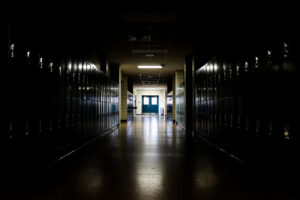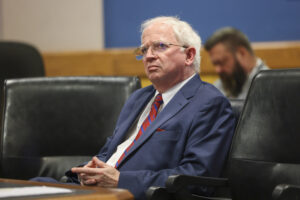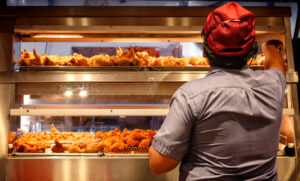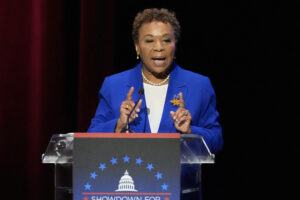Californians to Take Their Coffee With a Cancer Warning
A judge rules that coffee sellers—such as Starbucks—must post the warning because of a chemical produced in the roasting process.LOS ANGELES—A Los Angeles judge has determined that coffee companies must [use] an ominous cancer warning label because of a chemical produced in the roasting process.
Superior Court Judge Elihu Berle said Wednesday that Starbucks and other companies failed to show that benefits from drinking coffee outweighed any risks. He ruled in an earlier phase of trial that companies hadn’t shown the threat from the chemical was insignificant.
The Council for Education and Research on Toxics, a nonprofit group, sued Starbucks and 90 other companies under a state law that requires warnings on a wide range of chemicals that can cause cancer. One is acrylamide, a carcinogen present in coffee.
“Defendants failed to satisfy their burden of proving … that consumption of coffee confers a benefit to human health,” Berle wrote in his proposed ruling.
The coffee industry had claimed the chemical was present at harmless levels and should be exempt from the law because it results naturally from the cooking process that makes beans flavorful. It also argued coffee was good for the body.
The ruling came despite eased concerns in recent years about the possible dangers of coffee, with some studies finding health benefits. In 2016, the International Agency for Research on Cancer — the cancer agency of the World Health Organization — moved coffee off its “possible carcinogen” list.
The lawsuit was brought under the Safe Drinking Water and Toxic Enforcement Act, passed by voters in 1986. It allows private citizens, advocacy groups and attorneys to sue on behalf of the state and collect a portion of civil penalties.
The law has been credited with reducing chemicals that cause cancer and birth defects, such as lead in hair dyes, mercury in nasal sprays and arsenic in bottled water. But it’s also been widely criticized for abuses by lawyers shaking down businesses for quick settlements.
“Coffee has been shown, over and over again, to be a healthy beverage,” said William Murray, president and CEO of the National Coffee Association, in reaction to the decision. He argued the lawsuit “does nothing to improve public health.”
The lawsuit has been brewing for eight years and is still not over. A third phase of trial will determine civil penalties of up to $2,500 per person exposed each day over eight years, an astronomical figure in a state of 40 million that appears unlikely to be imposed.
Attorney Raphael Metzger, who brought the lawsuit and drinks a few cups of coffee daily, wants the industry to remove the chemical from its process. Coffee companies have said that’s not feasible.
“Getting it out is better for public health than leaving it in and warning people,” he said.
Metzger’s client brought a similar case later taken up by the state attorney general that resulted in potato-chip makers agreeing in 2008 to pay $3 million and remove acrylamide from their products.
The chip-makers opted to do that rather than post cancer warnings like those that are found, and largely ignored, throughout California.
Parking garages have signs warning of chemical dangers that can cause cancer, birth defects and other reproductive harm. They note carbon monoxide and gas and diesel exhaust is present and that people should not to linger longer than necessary.
Many coffee companies have already posted warnings saying acrylamide is found in coffee. However, many are posted in places not easily visible like below counters where cream and sugar are available.
The judge has given the defense a couple weeks to file objections to the proposed ruling before he makes it final. California judges can reverse their tentative rulings, but rarely do.
About a dozen of the defendants in the case have previously settled and agreed to post warnings, Metzger said. With some defendants dismissed or affiliated with larger companies about 50 defendants remain.
Among the latest to settle was 7-Eleven, which agreed to pay $900,000. BP West Coast Products, which operates gas station convenience stores, agreed to pay $675,000.
Even at Starbucks shops where the labels are posted, many coffee drinkers are unaware of them.
Afternoon coffee drinkers at one shop in Los Angeles said they might look into the warning or give drinking coffee a second thought, but the cup of joe was likely to win out.
“I just don’t think it would stop me,” said Jen Bitterman, a digital marketing technologist. “I love the taste, I love the ritual, I love the high, the energy, and I think I’m addicted to it.”
Darlington Ibekwe, a lawyer in Los Angeles, said a cancer warning would be annoying but wouldn’t stop him from treating himself to three lattes a week.
“It’s like cigarettes. Like, damn, now I’ve got to see this?” he said. “Dude, I’m enjoying my coffee.”
___
Associated Press writer Amanda Lee Myers in Los Angeles and AP Chief Medical Writer Marilynn Marchione in Milwaukee contributed to this story.
Your support matters…Independent journalism is under threat and overshadowed by heavily funded mainstream media.
You can help level the playing field. Become a member.
Your tax-deductible contribution keeps us digging beneath the headlines to give you thought-provoking, investigative reporting and analysis that unearths what's really happening- without compromise.
Give today to support our courageous, independent journalists.






You need to be a supporter to comment.
There are currently no responses to this article.
Be the first to respond.